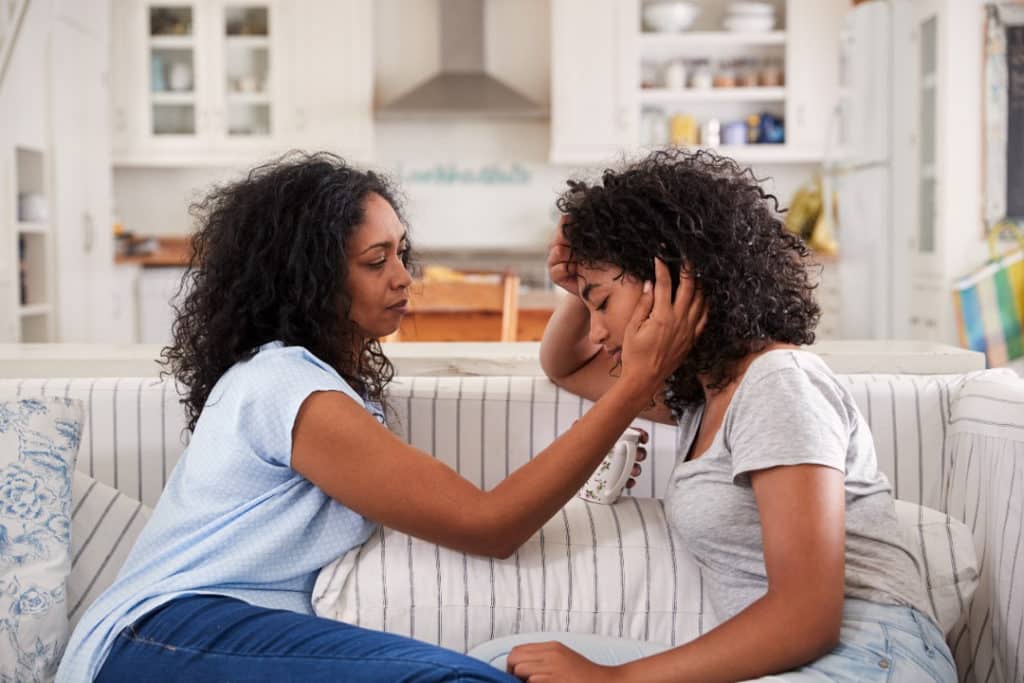An eating disorder diagnosis can be a scary and emotional time for your teen and your family. After the initial flurry of activity associated with an eating disorder diagnosis passes and a plan is in place, parents and families are often left with questions on how to best support their loved ones struggling through eating disorder recovery. At the same time, knowing how to take care of yourself can be challenging. Read on for tips on how you can help support your teen after an eating disorder diagnosis.
Listen To Your Teen
The most important way to support your teen is to simply be available to listen without offering advice or solutions. It’s also critical to listen to their feelings, thoughts, and concerts without judgment or criticism. Sometimes allowing a person just to express how they feel, right or wrong, good or bad, can make them feel heard and can be incredibly helpful.
Get Curious and Learn
Learning everything you can about eating disorders is vital to understand better your loved one’s behaviors, thoughts, and emotions. The more you know, the more you can help them, and there are numerous resources available. You can start with the National Eating Disorder Association’s website for some basic information and resources. Then, you can move on to the eating disorder catalogue at edcatalogue.com for even more resources.
Take Care of Yourself
Throughout your loved one’s recovery, it’s important to ensure you’re taking care of and supporting yourself. Taking care of and supporting someone with an eating disorder is incredibly difficult. Finding your own mental health therapist is a good idea, but even a close friend who has enough distance from the situation can be helpful.
Focus On Feelings, Not Food
When you notice the potential for a brewing conflict, or if your child is experiencing overwhelming emotions, you need to focus on the feelings, not food. Eating disorders are never just about food. When your loved one is talking about food, check in with their emotional state first.
Be Realistic About Your Expectations
It’s important to check your expectations regarding the recovery process. Eating disorders are complicated, and treatment is multi-dimensional. Recovery is often a long road with a few steps forward and a few steps back, so you should always celebrate even the smallest success.
If your loved one needs help, call 419-885-8800 to contact the compassionate Toledo Center team today. Our Child and Adolescent Residential Program provides clients with a structured, constant, and stable environment in which they can restore their physical and psychological health. Residential programming encourages goal setting and continuously recognizes progress, helping each client transition to a life free from their eating disorder. We also offer a Family Education and Coaching Program, so they can continue to support their teen after treatment.
Resource List
- Academy for Eating Disorders (AED): https://www.aedweb.org/home
- Alliance for Eating Disorders Awareness: https://www.allianceforeatingdisorders.com/
- Eating Disorders Resource Catalogue: https://www.edcatalogue.com/
- National Eating Disorders Association (NEDA): https://www.nationaleatingdisorders.org/
For additional resources on eating disorders, visit our extensive list here.

